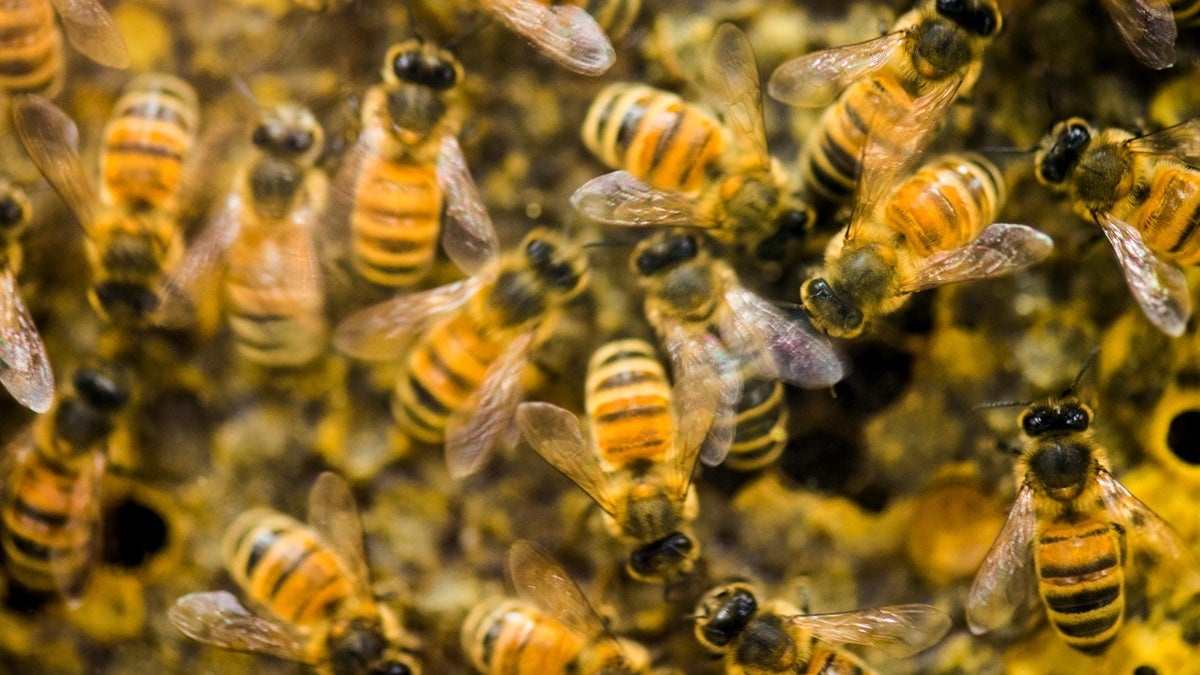Hobbyist beekeepers can use tool to protect bee health

(AP Photo/Andy Duback
Delaware’s hobbyist beekeepers can now use an online tool to protect their colonies.
Delaware has about 270 registered beekeepers, most of them hobbyists, who have between 2,000 and 3,000 hives.
Farmers bring in another 3,000 bee colonies each year to maximize crop pollination on items like watermelons, cucumbers and strawberries.
But in recent years, beekeepers have struggled with external forces that are killing their colonies much faster than before—and this is partly due to pesticide use.
When pesticide applicators spray on farmers’ crops, it sometimes can drift on a windy day, affecting the bees. Sometimes bees fly out to crops where pesticides have been applied, and feed their babies who then die as a result.
“It’s a real problem trying to make sure your hives are located far enough away from farms, which is difficult to do, or you have some kind of a relationship with the farmer, or the farmer does good practices in terms of when he applies his pesticides and what kind of pesticides he uses,” said Bill Leitzinger, a 12-year hobbyist beekeeper and former president of the Delaware Beekeepers Association, with colonies in Dover and Middletown.
But now hobbyists can participate in the Department of Agriculture’s BeeCheck program, which allows beekeepers to add their state-registered beehives to the DriftWatch map—a tool that helps beekeepers, farmers and pesticide applicators share information on their whereabouts. The free program had previously been open to commercial beekeepers only.
“What this program does is provide communication and awareness so applicators can be aware of specialty sites nearby,” said the department’s hydrologist Laura Mensch. “If there is a bee hive in the area, the applicator can take special care to avoid drifting onto that location and can also contact the beekeeper and the beekeeper may opt to cover their hive.”
DriftWatch, developed by Perdue University, has been around for two years and is in 12 states. But Mensch said the department has focused more on beekeepers as it continues work on its Managed Pollinator Protection Plan, which outlines strategies and techniques to protect and enhance bee populations in the state.
Leitzinger said pesticides aren’t the only challenge bees face. He and other hobbyists lose hives every year or every other year, which is a more recent trend. There are more illnesses affecting bees, and the creatures also can be killed by mites.
However, Leitzinger said the BeeCheck program is a very important first step to ensuring the safety of bee colonies.
“If we have some communication maybe the farmer changes his practices a bit, so that kind of communication is important,” he said.
“We can work with the farmer and make better decisions about where we place our hives. We don’t want to place our hives next to this watermelon patch in August when they’re applying pesticides. Maybe we want to move that hive for a few days—that type of communication can save bees.”
WHYY is your source for fact-based, in-depth journalism and information. As a nonprofit organization, we rely on financial support from readers like you. Please give today.





